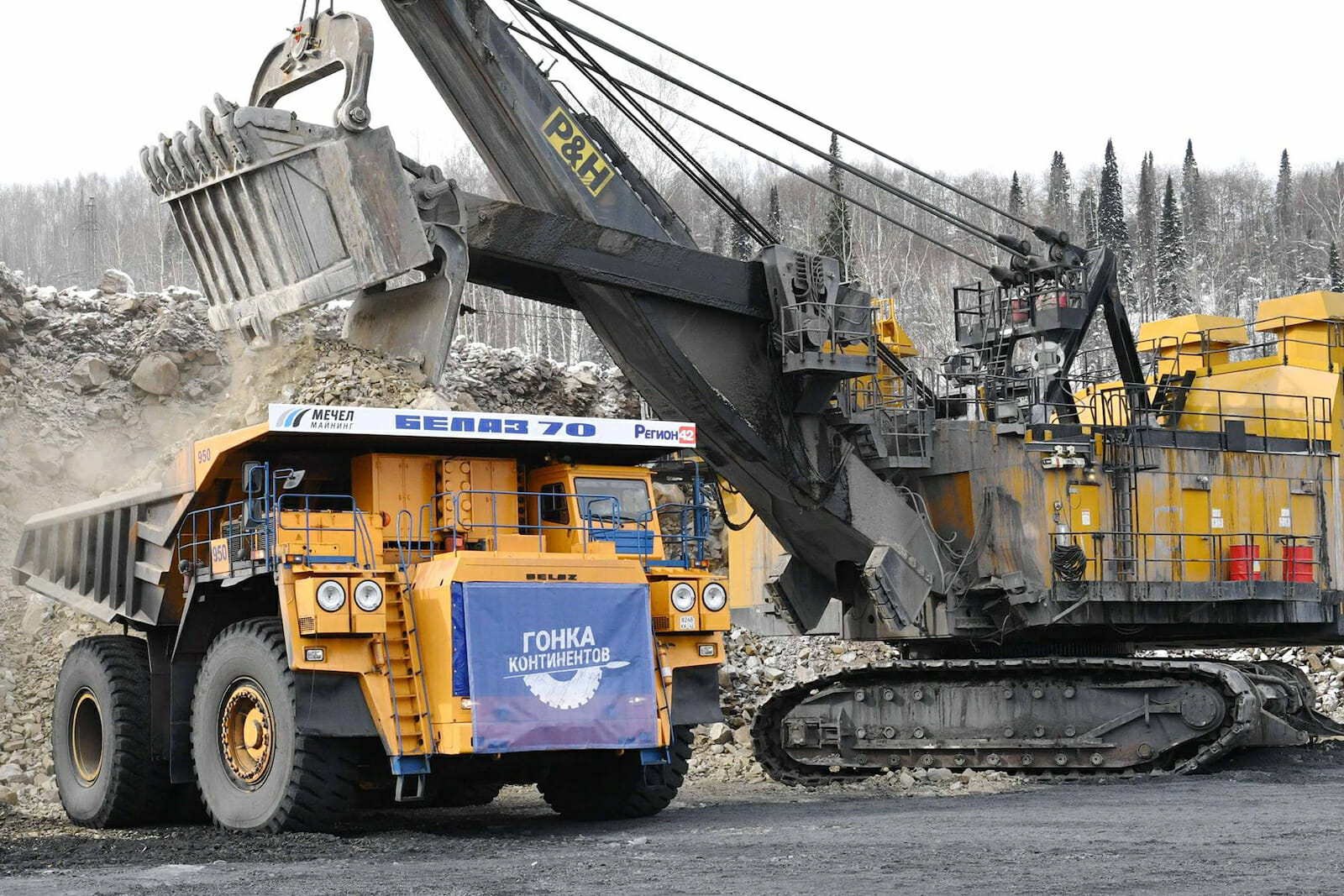
In Africa, Belarus Steps Up While West Retreats
Africa’s international trade is largely seen through the U.S.-China prism, a binary choice between one economic partner or the other. But as the West steps back from its strategic relationships in the continent, and as African countries grow weary of the debt potential of China’s controversial Belt and Road Initiative, several countries in central and southern Africa are finding a new partner in the unlikeliest of places: Belarus.
This former Soviet republic of 9.5 million people, landlocked between Poland and Russia, has a proud history of mechanical engineering. Belarus was an “assembly plant” of the Soviet Union, but is today considered modern and technologically advanced. Its manufacturing sector employs 150,000 people and encompasses about 200 enterprises. The product range is extensive, from microchips and heart valves to the world’s biggest dump trucks (of which it occupies 30% of the world market).
Belarus has reached out to African countries. In 2017 it organized the first Belarus-Africa Forum in Minsk. African countries have signed several agreements with Belarusian companies, interested in their expertise in agriculture, mining machinery, road construction as well as passenger transport and freight.
Belarusian companies have an advantage as their country provides foreign buyers with project financing on favorable terms from the Development Bank of Belarus, the African Export-Import Bank (Afreximbank), and the Eastern and Southern African Trade and Development Bank (TDB). This has encouraged African customers, who are put off by the stringent conditions set by the West and the high-interest repayments demanded by Chinese suppliers.
“Our financial institutions provide long-term financing that makes it possible for African partners to receive the machinery now and pay for it in the future once profits start coming in,” said Alexander Zingman of AFTRADE DMCC, the official representative of several Belarusian manufacturers in Africa.
In January-July 2019, Belarus’ industrial exports to Africa rose 1.4 times over the same period in 2018. Trial batches of products were shipped to African countries where Belarus did not export to the previous year, including Benin, Togo, and Uganda.
Steel mill BMZ exported over 427,000 tonnes of metal products worth over $167 million to African countries in 2019. Africa is already its third-largest market, after Russia and the European Union, with as many as 16 African countries importing BMZ products. Two of them – Kenya and Uganda – are new markets, which acquired rolled steel for the first time. Egypt accounted for more than half of the products that BMZ shipped to Africa.
Truck maker BelAZ is the world’s leading manufacturer of large haul trucks and heavy transport vehicles for mining and civil engineering industries. Africa is an important market with its large mineral reserves and mining operations. The company is present in South Africa, Zimbabwe, Morocco, Angola, and Congo, with representative offices in these countries.
Agricultural machinery, including tractors, are also in demand in Africa as the continent gears up to increase food production. The exports of Minsk Tractor Works (MTZ) to the continent soared 70% in January-March 2020 over the same period in the previous year. Tractors have been supplied to Kenya, Zimbabwe, Nigeria, Mozambique, and Burkina Faso. In May 2019, Belarus discussed setting up a tractor assembly factory in Mozambique in the near future.
Its neighbor Zimbabwe has ordered grain harvesters, tractors, and seed drills from Belarus. Apart from the usual spare parts, training, and warranty requirements, Zimbabwe stipulated that the manufacturer would be responsible for the mechanization of the entire agricultural sector by providing agricultural solutions for cultivation, seeding, irrigation, planting, and crop harvesting.
Belarus accepted the additional conditions and is implementing them on a turn-key basis. It provided the project with long-term financing for the acquisition of the machinery and equipment; Belarusian technical specialists have been sent to Zimbabwe for one year and Zimbabwean specialists hosted in Belarus for two months. Since the 16th of March, the Belarusian manufacturer has shipped more than 170 vehicles as the first installment. The remaining 580 units of agricultural machinery and equipment are expected by the end of 2020, along with spare parts for their warranty and service support.
“This project will enable Zimbabwean farmers to boost the productivity of their land and to reduce their losses through timely crop harvesting. The result will be that farmers can ensure the food security of Zimbabwe itself and, where possible, also raise their income levels by exporting their produce,” pointed out Alexander Zingman, who is also the Honorary Consul of Zimbabwe to Belarus.
Agriculture is an important area of trade with Africa, and Belarus is a powerhouse in the sector, exporting agricultural products worldwide worth $7 billion a year. In 2019, the country exported agricultural products and food to 104 countries; in Africa these included Guinea, Kenya, Mauritania, Sudan, and Uganda. Last year, Angola and Burkina Faso started buying malt from Belarus, while Benin, Mozambique, and Niger bought skimmed milk powder from Belarus for the first time.
Belarus clearly believes in building a long-term relationship with its African partners, beyond trade and exports. In April 2019, the country provided humanitarian aid to Zimbabwe and Mozambique after the devastation caused by Cyclone Idai, flying in much-needed supplies to support survivors of the natural disaster. This gesture will not have gone unnoticed by Africans in their time of need.
Belarus and Africa are complementary in many ways when it comes to trade. Belarus offers sophisticated technology and agricultural products, which African countries can use to boost their own economies and productivity. Importantly, there is no colonial baggage or debt traps in this relationship. The trust that both sides have in each other and the long-term nature of the growing relationship are sources of hope.

